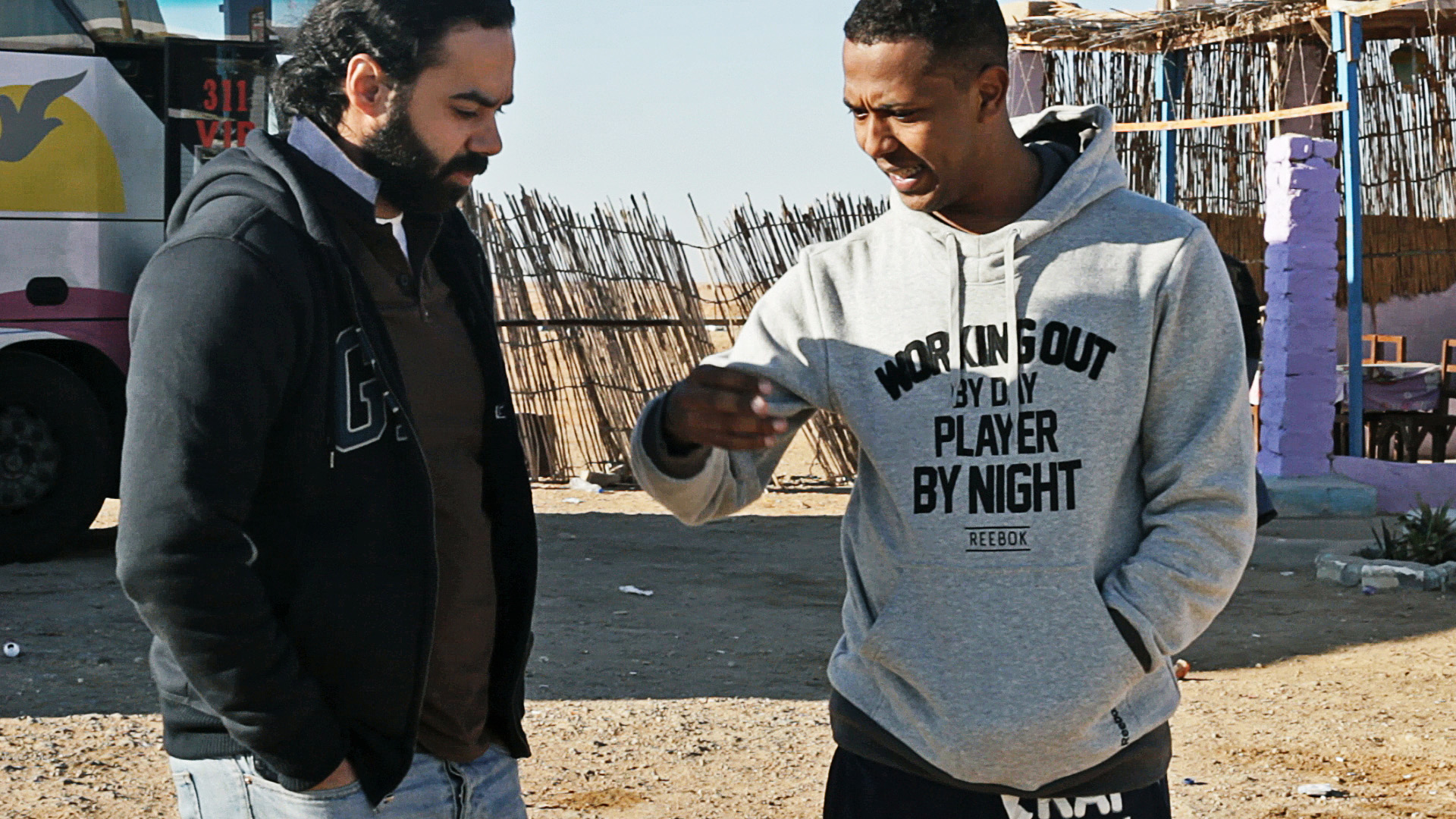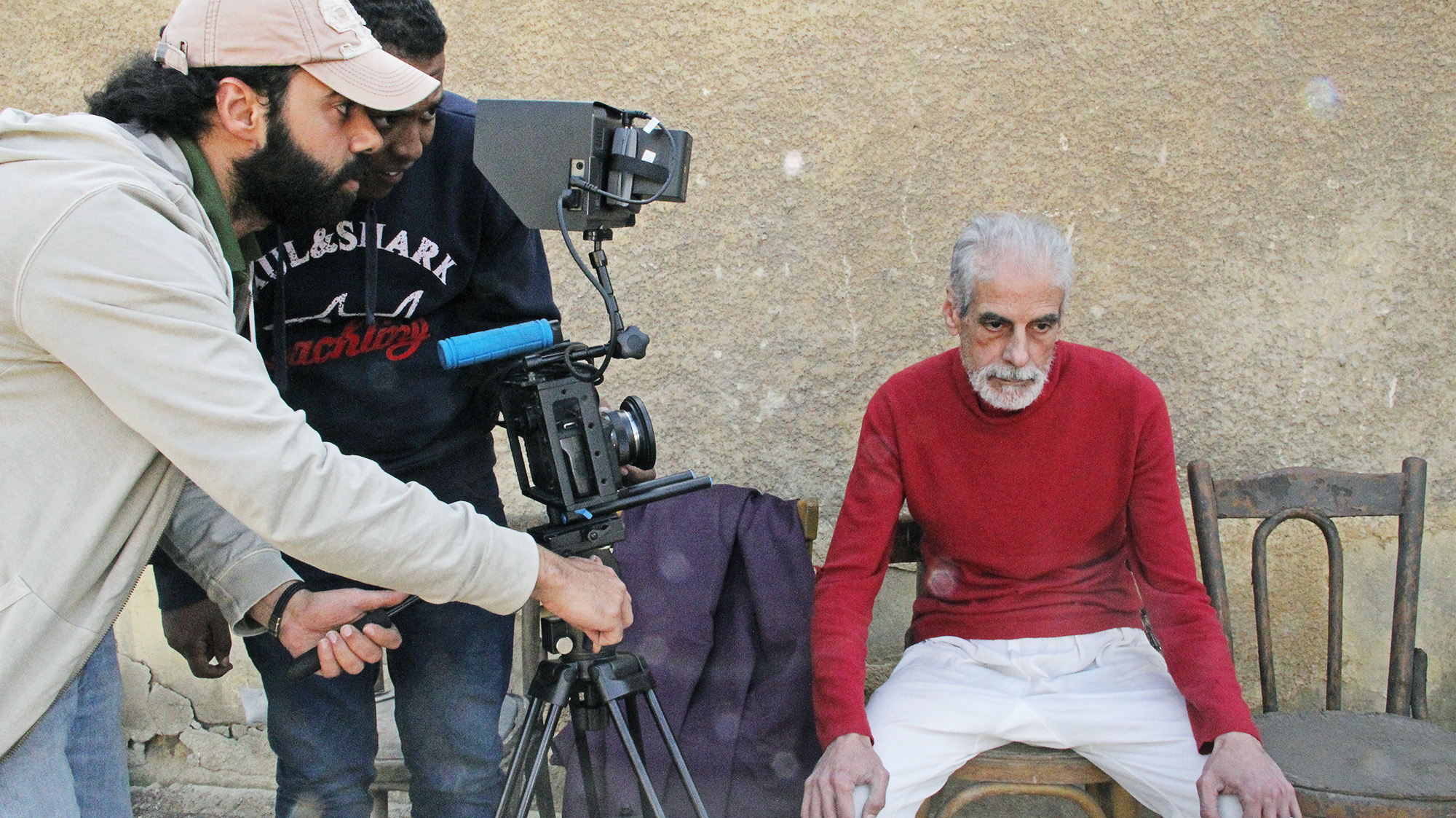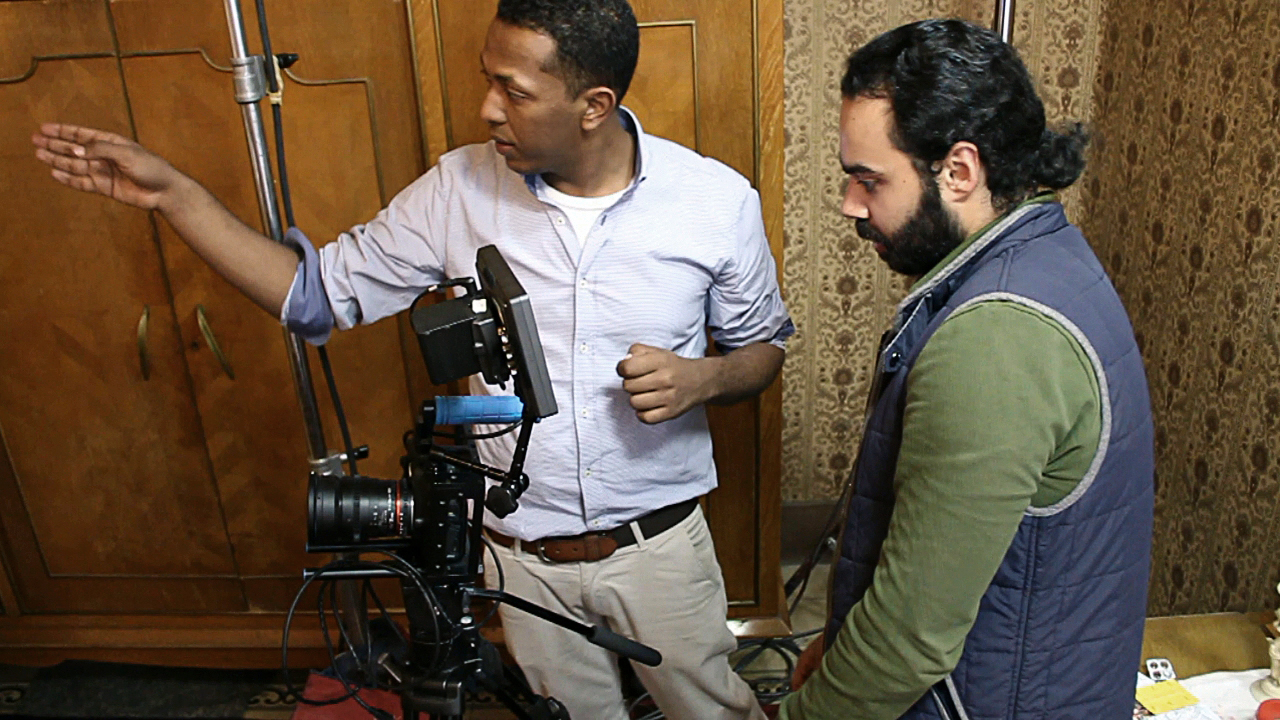Update 6 December 2016: this film will premiere at Zawya Cinema at 7:30 on Wednesday, 7 December for one week.
In the four years following the January 25 Revolution, the majority of Egypt’s youth have experienced wave after wave of intense emotions, ranging from hope to despair and plenty in between. As they witnessed their hopes vaporize and vanish in thin air, many of the once optimistic young Egyptians have recoiled into a sphere of silence.
During these moments of silence, one’s inner voices grow loudest, reconnecting the surfacing memories and dwelling thoughts.
Seeing how narration is the only way to free oneself from the captivity of those silent voices within, film director Karim Shaaban set out to narrate the many untold stories of those who have become alienated in their own homeland.
Together with director of photography Habby Khalil, Shaaban spoke to Egyptian Streets about their latest production, Fi Youm (In a Day). Under the category of long feature films, Fi Youm has been selected as Egypt’s only competing film in the Horizons of Arab Cinema competition – taking place within the 37th Cairo International Film Festival which has kick started on Wednesday.
“Whether the audience like the film or not is something for them to decide on,” said Khalil. “However, it is worth recognizing that producing Fi Youm has truly been a unique experience on the personal scale and in relevance to the market.”
-
Karim Shaaban (left) and Habby Khalil (right) amid an on-set discussion. Courtesy of Karim Shaaban.
A Cinematic Experience of Diligence and Precision
“Any filmmaker must relate to his surroundings,” said Shaaban. “To make a film is to use this space to express not only the state that I am in, but that which the people around me are in too.”
Trapped in the fast pace of life which only allows people limited space to stop and think, Fi Youm adopts a rather slow pace which intends to break the speedy modern life pattern. Hoping to create a shared space for people to reflect on their own lives and the ones around them, Shaaban tells the stories of seven characters who look back on their lives and ponder the paths they have thus far walked.
“In my selection of the characters, I was keen that each viewer would be able to relate to at least one of them,” said Shaaban.
However, in their recollection of their past events, none of the characters share any dialogue amongst one another. Instead, “all the drama that takes place happens within, and they never reveal it to the outside world,” explains Shaaban.
From one unconventional treatment to the other, Shaaban decided to shoot the entire film first, and then develop the dialogue and script – which practically flips the norm upside down. Although initially unintended, such reversed sequence forced Shaaban, Khalil and the entire team to adopt an impressively articulate treatment for the film’s sounds.
-

Sound designer Amr Yehia recreating ambient sounds. Source: Fi Youm website
With no dialogues to record on-set, Shaaban ended up with brilliant visuals that were nonetheless mute. “In foreign studios, it is standard to have a library of sounds including footsteps, creaking floors and a myriad of other ambient sounds. But since Egyptian movies have long been accustomed to recording all their audio tracks on-set, such library is lacking in Egypt,” explained Shaaban.
To overcome such predicament, the team invited over sound engineer Amr Yehia to recreate the entire film’s sounds in a studio. “Surprisingly, this gave us unprecedented control over every sound you hear in the film,” said Khalil giggling at the unexpected fortunate turn they took.
Even though Shaaban had a clear vision for the screenplay, the characters and their dimensions, Fi Youm was more or less an experimental space for everyone on board. “I think it is rather unique for such film how Karim had established the structure and backbone of the film, but left enough space for the entire team to leave their own marks by proposing different views on how to develop the various details,” said Khalil.
-

DOP Habby Khalil (left), Director Karim Shaaban (right). Courtesy of Karim Shaaban
Where Aspiration and Tradition Collide
Although stepping away from the conventional path of filmmaking has given Shaaban and Khalil a chance to learn through hands-on experiments, it has also exposed them to the impeding, unchanged rigidity of the filmmaking industry. Among the most common obstacles was dealing with the predominant labels of ‘independent’ versus ‘commercial’ films.
“There is no such thing as commercial cinema and independent cinema,” Shaaban said. “Cinema is when one decides to make a film, whether one bears the production expenses or resorts to a producer to cover that.
“What is independent cinema independent from anyway? That is something to ponder.”
Traditionally, Shaaban explains, a filmmaker would have to work under the umbrella of a production house, supply certain equipment, get all the bureaucratic permits in order to proceed with production, and all of that constituted the traditional system for filmmaking. “Today, those who call themselves independent are in essence trying to state their independence from such traditional system.”
-

Actor Raafat el-Bayoum (left) and DOP Habby Khalil (right) during filming. Source: Fi Youm website
But as far as public perception is concerned, “independent cinema mainly refers to the youth’s cinema, but it also entails plenty of misconceptions,” explained Shaaban. “It is perceived as the cinema which tackles issues, but that is also unnecessarily deep and philosophical to the extent that the audience doesn’t understand or relate to it.”
Other common prejudices include that independent movies are ones that fall short of presentable quality and professional filmmaking. “Just because a movie is ‘independent’ or self-funded does not mean that any of the filmmaking steps have been overlooked,” added Khalil.
By time, such false labels were transmitted from the audience to the young generations of filmmakers. With no one intervening to rectify such idea, “Egypt’s independent cinema started growing distant from the Egyptian audience, in terms of style and content.”
-

On-set shooting with Habby Khalil, Karim Shaaban and actor Mostafa Darwish. Courtesy of Karim Shaaban
Bringing Back a Mature Cinema Industry
While both Shaaban and Khalil ascertained that the growing gap between the independent cinema and the majority of the audience has become indisputable, each saw different root causes to such problem.
According to Khalil, the problem lies within the audience’s rigidity in accepting other forms of art that are different from what they are used to. “As a filmmaker, you are required to educate your audience on the other possible means to treat and develop your screenplay,” he added. “People must learn how to accept what is different.”
On the other hand, Shaaban blamed the filmmakers for the gap they have created. “Filmmakers must always bear in mind that their audience is Egyptian. If you consider the European market your audience in hopes to earn feats among the European film festivals, you are deemed to disappoint both audiences; you neither address the issues of your local audience, nor are you fully aware of the everyday European challenges to fairly compete with what they would consider local content.”
Turning to Khalil in disagreement, Shaaban added that a viewer must first find a bond that links him/her to the film. “Invite the viewer to be your partner in your filmmaking process; that’s the role of the cinema: to stir such conversations around the films, pointing out their strengths and weaknesses in hopes of making way for more relatable cinema in the future. And even if the ideas are sound, conversation always adds to the richness of the experience.”
-

Actress Fatma Kamal during on-set shooting. Source: Fi Youm website
Acknowledging that such space of discussion is both desirable and mandatory, Shaaban and Khalil agreed that much of the independent cinema’s struggle lies within its limited availability. “Many great independent films never make it beyond very limited screening halls, such as Zawya,” said Shaaban.
In his opinion, the reason why most, or almost all of the big cinema screens wouldn’t host independent films is that they won’t bring in as much revenue. “We have absolutely no support from the state, and the authority all lies within the hands of those who have the money,” Shaaban regretted. “Let them display all the commercial movies they want, but also guarantee space for the good movies.”
Seeing as how independent filmmakers take the risk of financing a project that may never reach a wide audience, Shaaban is proud that his film got the chance to compete in the 37th CIFF, and hopes that the film screening will allow him the chance to interact with the audience and receive feedback, no matter how harsh.
“However, what I would like to ask of our audience is to let go of their expectations as they enter the screening hall,” said Khalil. “Let the story move you, try to find yourself in a space between the characters, enjoy the visuals and the music. Just let go, and enjoy the moment.”
If you would like to watch Fi Youm, and share your opinion directly with Shaaban, Khalil and the rest of the crew, make sure to attend the film screening on Friday November 13, or Saturday November 14.
For more information, visit the Facebook event or the website.







Comment (1)
[…] Open Heart will be directed by Deiab and produced by Karim Shabaan, a Cairo-based filmmaker whose first feature film Fi Youm (In a Day) was positively received by critics. […]